Crime
Nigerians killed in South Africa within 48 hours
Published
6 years agoon
By
Olu Emmanuel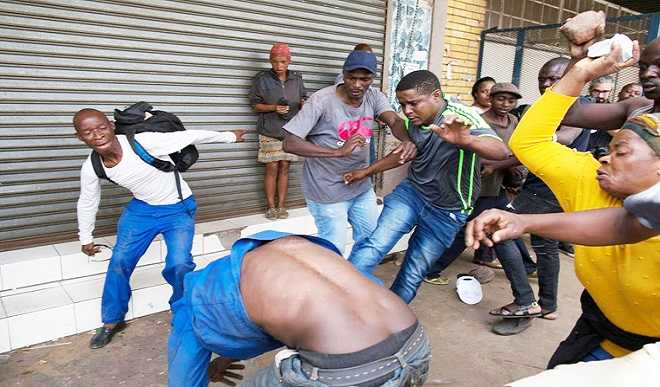
Grief-stricken Nigerian community in South Africa has confirmed the vicious killing of two members in that country within 48 hours barely a month after President Jacob Zuma was honoured by the Imo Government.
In October, a Nigerian man was shot dead in South Africa over an alleged 300 Rand (about N7,500) parking lot debt.
No fewer than 116 Nigerians have been dispatched to their early graves in the country through extra-judicial means in the last two years, according to Special Assistant to the President on Foreign Affairs and Diaspora, Mrs Abike Dabiri-Erewa.
A dependable source said the first victim, Ikechukwu Mmanwoke Edmond, 40, was killed on Nov. 11.
The source said the deceased, a businessman and native of Ihembosi, Ekwusigo Local Government Area of Anambra, was killed in front of his house on Amant Street, Malvern, Johannesburg.
It quoted an eyewitness and neighbour of Ikechukwu, Sibongile as saying that six men came to their house and started breaking doors and taking out their personal effects.
“ When she (Sibongile ) raised alarm, they started beating her. When Ikechukwu came in and saw what was happening, he brought out his phone to call the police.
“A member of the gang took a brick and hit him in the face and he fell down. When the police arrived, he was already dead,” the source told NAN.
According to the source, police said they have commenced “investigation’’ into the death of the businessman.
The second victim, Eluka Agu, native of Ihiala also from Anambra, was allegedly robbed and then beaten by some South Africans at Oliven, Centurion on Monday (Nov. 13).
The said the police came and took him away to his house for a search.
“The victim pleaded with the police to take him to the hospital for treatment but they refused.
“ After searching his house without finding anything, he died as a result of the severe beating’’.
As usual, the Nigerian community in the area which expressed worry about the incidents, had vowed to take up the matter with “appropriate authorities’’, the source added.
Dabiri-Erewa, while reacting to the gruesome killing of a Nigerian, Tochukwu Nnadi, by police in South Africa which has brought the number of Nigerians massacred in the country to 20 in 2016 alone, had described it as “unacceptable to the people and government of Nigeria’’.
“The barbaric behaviour of the perpetrators is not only unacceptable, but also calls for urgent attention by diplomatic authorities in Nigeria and South Africa,” she said, reiterating President Muhammadu Buhari’s call to Nigerians to avoid crimes such as drug peddling which attracts stiff penalties, sometimes death.
Dabiri-Erewa urged the South African government to ensure that justice prevailed by carrying out investigation and bring the culprit to book.
On Oct.11, Mr Jelili Omoyele, a 35-year-old cellular phone technician, was allegedly shot dead in Johannesburg while Olamilekan Badmus, a 25-year-old from Ogun, was also killed at Vaal Vreneging, near Johannesburg.
On the same day, a third Nigerian identified as Ifeanyi, a chicken seller, was accidentally shot in the head by the police.
On Oct. 15, Imo Gov. Rochas Okorocha unveiled a statue in honour of South African President Jacob Zuma, who witnessed the event.
Apart from the statue, a road was also named after Zuma with a traditional title of Ochiagha Imo by Eze Imo, Samuel Ohiri, to crown the state honour bestowed on him.
During the military administration of the then Gen. Olusegun Obasanjo, Nigeria spearheaded the struggles that ended Aparthied in South Africa.
Among other efforts, the military administration of Gen. Obasanjo contributed $3.7 million to the fund and also committed personal donation of $3,000 to the fund.
All Nigerian civil servants and public officers at the time made a 2% donation from their monthly salaries to the fund while Nigerian students skipped their lunch to make donations, and by June 1977, the total contribution to the fund had reached $10.5 million.
Between 1973 and 1978, Nigeria contributed $39,040 to the UN Educational and Training Programme for South Africa and in 1976, Nigeria boycotted the 1976 Olympics and Commonwealth games in 1979 as part of protest against the apartheid regime in South Africa.
From 1960 to 1995, according to available records, Nigeria spent over $61 billion to support the end of apartheid more than any other country in the world.
The late Sunny Okosun of Nigeria composed a song called “Fire in Soweto” in 1977 to show support for the fight against apartheid.
2 Nigerians killed in South Africa within 48 hours
Grief-stricken Nigerian community in South Africa has confirmed the vicious killing of two members in that country within 48 hours barely a month after President Jacob Zuma was honoured by the Imo Government.
In October, a Nigerian man was shot dead in South Africa over an alleged 300 Rand (about N7,500) parking lot debt.
No fewer than 116 Nigerians have been dispatched to their early graves in the country through extra-judicial means in the last two years, according to Special Assistant to the President on Foreign Affairs and Diaspora, Mrs Abike Dabiri-Erewa.
A dependable source said the first victim, Ikechukwu Mmanwoke Edmond, 40, was killed on Nov. 11.
The source said the deceased, a businessman and native of Ihembosi, Ekwusigo Local Government Area of Anambra, was killed in front of his house on Amant Street, Malvern, Johannesburg.
It quoted an eyewitness and neighbour of Ikechukwu, Sibongile as saying that six men came to their house and started breaking doors and taking out their personal effects.
“ When she (Sibongile ) raised alarm, they started beating her. When Ikechukwu came in and saw what was happening, he brought out his phone to call the police.
“A member of the gang took a brick and hit him in the face and he fell down. When the police arrived, he was already dead,” the source told NAN.
According to the source, police said they have commenced “investigation’’ into the death of the businessman.
The second victim, Eluka Agu, native of Ihiala also from Anambra, was allegedly robbed and then beaten by some South Africans at Oliven, Centurion on Monday (Nov. 13).
The said the police came and took him away to his house for a search.
“The victim pleaded with the police to take him to the hospital for treatment but they refused.
“ After searching his house without finding anything, he died as a result of the severe beating’’.
As usual, the Nigerian community in the area which expressed worry about the incidents, had vowed to take up the matter with “appropriate authorities’’, the source added.
Dabiri-Erewa, while reacting to the gruesome killing of a Nigerian, Tochukwu Nnadi, by police in South Africa which has brought the number of Nigerians massacred in the country to 20 in 2016 alone, had described it as “unacceptable to the people and government of Nigeria’’.
“The barbaric behaviour of the perpetrators is not only unacceptable, but also calls for urgent attention by diplomatic authorities in Nigeria and South Africa,” she said, reiterating President Muhammadu Buhari’s call to Nigerians to avoid crimes such as drug peddling which attracts stiff penalties, sometimes death.
Dabiri-Erewa urged the South African government to ensure that justice prevailed by carrying out investigation and bring the culprit to book.
On Oct.11, Mr Jelili Omoyele, a 35-year-old cellular phone technician, was allegedly shot dead in Johannesburg while Olamilekan Badmus, a 25-year-old from Ogun, was also killed at Vaal Vreneging, near Johannesburg.
On the same day, a third Nigerian identified as Ifeanyi, a chicken seller, was accidentally shot in the head by the police.
On Oct. 15, Imo Gov. Rochas Okorocha unveiled a statue in honour of South African President Jacob Zuma, who witnessed the event.
Apart from the statue, a road was also named after Zuma with a traditional title of Ochiagha Imo by Eze Imo, Samuel Ohiri, to crown the state honour bestowed on him.
During the military administration of the then Gen. Olusegun Obasanjo, Nigeria spearheaded the struggles that ended Aparthied in South Africa.
Among other efforts, the military administration of Gen. Obasanjo contributed $3.7 million to the fund and also committed personal donation of $3,000 to the fund.
All Nigerian civil servants and public officers at the time made a 2% donation from their monthly salaries to the fund while Nigerian students skipped their lunch to make donations, and by June 1977, the total contribution to the fund had reached $10.5 million.
Between 1973 and 1978, Nigeria contributed $39,040 to the UN Educational and Training Programme for South Africa and in 1976, Nigeria boycotted the 1976 Olympics and Commonwealth games in 1979 as part of protest against the apartheid regime in South Africa.
From 1960 to 1995, according to available records, Nigeria spent over $61 billion to support the end of apartheid more than any other country in the world.
The late Sunny Okosun of Nigeria composed a song called “Fire in Soweto” in 1977 to show support for the fight against apartheid.
You may like
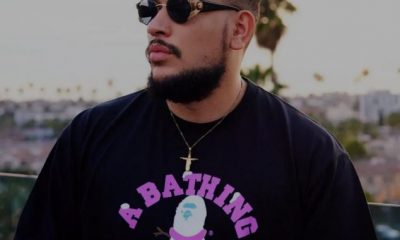

South African police arrest six for murder of rapper, AKA
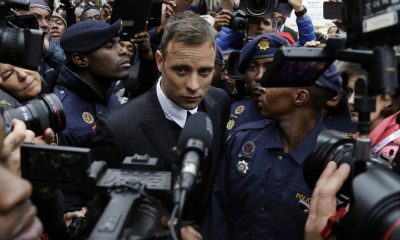

South Africa’s Pistorius on parole after 9 years behind bars
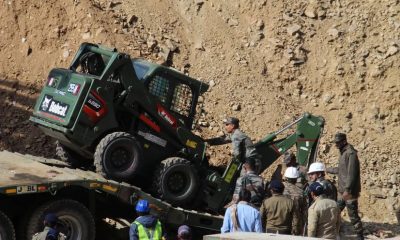

11 killed as South Africa platinum mine elevator plunges
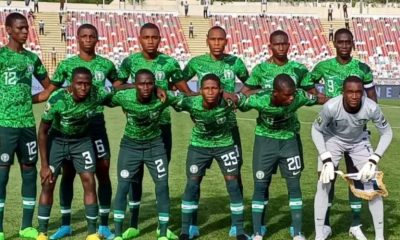

Nigeria Golden Eaglets misses out as FIFA U-17 World Cup
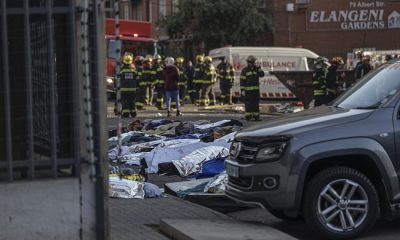

Fire outbreak kills 73
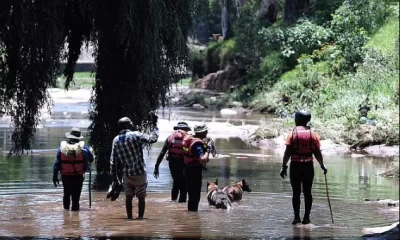

At least nine dead, eight others missing after flash flood sweeps away church members in South Africa
Trending

 Football7 days ago
Football7 days agoGuardiola advised to take further action against De Bruyne and Haaland after both players ‘abandoned’ crucial game

 Health & Fitness18 hours ago
Health & Fitness18 hours agoMalaria Vaccines in Africa: Pastor Chris Oyakhilome and the BBC Attack

 Aviation1 week ago
Aviation1 week agoDubai international airport cancels flights as flood ravages runway, UAE

 Featured5 days ago
Featured5 days agoPolice reportedly detain Yahaya Bello’s ADC, other security details

 Comments and Issues6 days ago
Comments and Issues6 days agoNigeria’s Dropping Oil Production and the Return of Subsidy

 Education6 days ago
Education6 days agoEducation Commissioner monitors ongoing 2024 JAMB UTME in Oyo

 Business6 days ago
Business6 days agoMaida, university dons hail Ibietan’s book on cyber politics

 Education1 week ago
Education1 week agoOsun NSCDC solicits cooperation towards national assets protection

